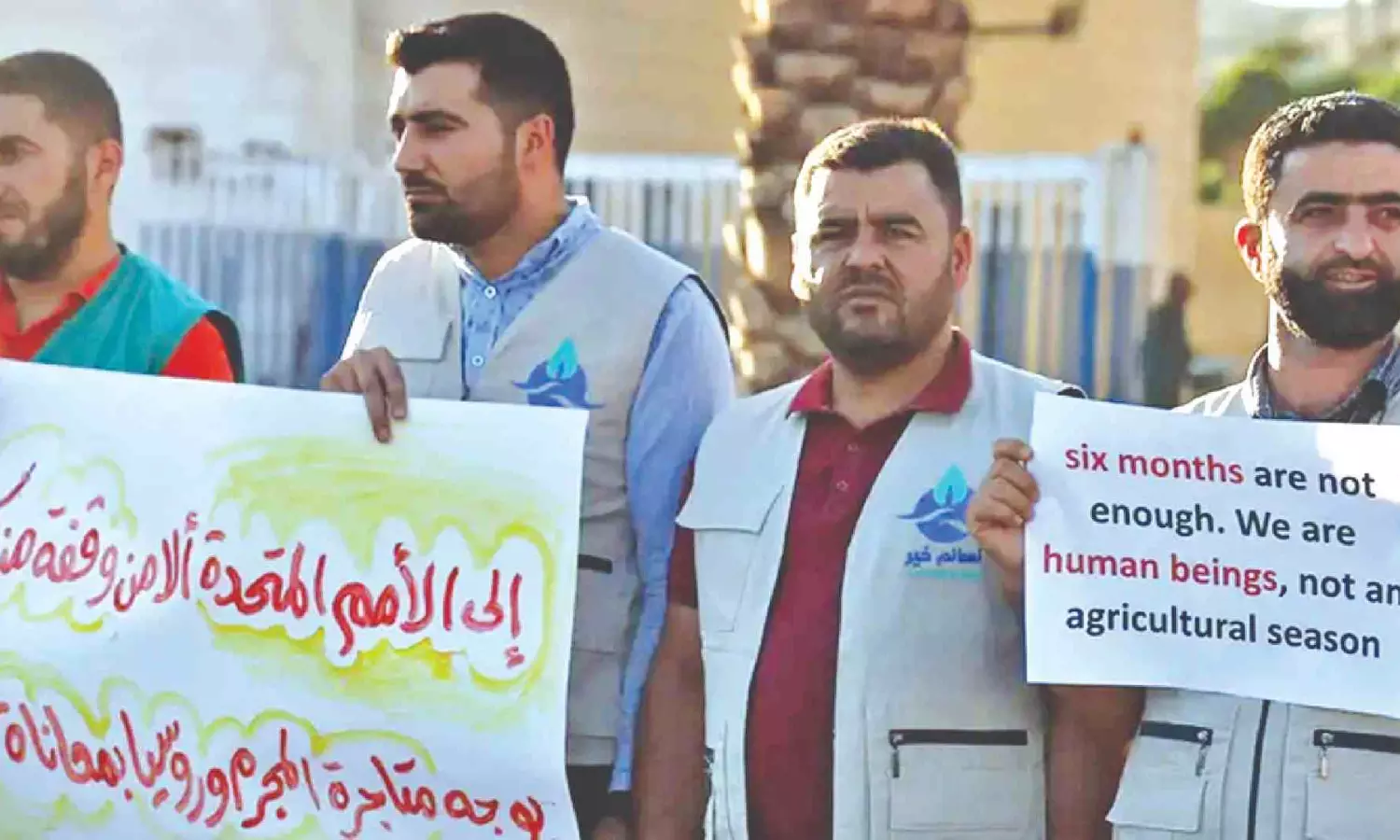Humanitarian needs How to get aid to millions in Syria now
This is a regime that has deliberately targeted teams working on the ground.;

Representative Image
C Schaer, O Albam
The United Nations does not treat us well, complains Abd al-Salam al-Youssef, a Syrian father of five who lives in the Batenta camp for displaced people in northwestern Syria. Like millions of Syrians who fled their homes during the country’s civil war, he depends on humanitarian aid coordinated by the UN and delivered into this opposition-held area in Idlib. “And I just cannot imagine why they would allow a person who displaced millions to supervise humanitarian aid now,” al-Youssef told DW. “I really hope that doesn’t happen.”
The 45-year-old is talking about the fact that a long-running mandate from the United Nations Security Council, which had allowed aid to be delivered over the Syrian-Turkish border directly into opposition-held areas, has just lapsed. Instead, Syrian dictator Bashar Assad, who many of the people living in this part of Syria oppose, has demanded his own government take charge of the deliveries. “Aid must not be politicised,” insists Anas Khazendar, an aid worker whose foundation, Al-Bunyan Al-Marsous, distributes food, water and other supplies to 10 camps around Idlib. “It’s an insult to civilians’ dignity. And as humanitarian organisations, we have no confidence in a system run by the Syrian regime. This is a regime that has deliberately targeted teams working on the ground.
Then again, aid coming into Syria over international borders has been a political issue for years now. Up to 3 million of the 4.7 million people living in opposition-held northern Syria rely on humanitarian aid deliveries to survive. For years, the Assad government had insisted it should control aid coming into the country while also doing things like starving opposition-held towns into submission and profiting from aid deliveries. Because of this, the UN Security Council, or UNSC, got involved and authorised so-called “cross-border aid” — that is, aid delivered across the international borders into opposition-held areas without the Syrian government’s permission. Since then, cross-border aid deliveries were governed by a series of resolutions from the UNSC that had to be renegotiated every six months.
This month, negotiations around the UNSC mandate failed after Russia vetoed a plan for a nine-month extension. Shortly afterward, the Syrian government said it agreed to aid being delivered across the Turkish border for another six months – but only under certain conditions. It says it should be allowed to supervise all deliveries and the UN should not have any contact with what it describes as “terrorist organisations.”
The UN has since replied that these conditions are unacceptable.
They may also be unrealistic. Experts point out that while the Assad government may be in charge of the Syrian-Turkish border on paper, it does not actually control it. The Turkish government controls its side and the Syrian side is run by groups who fought the Assad government.
“[The] common portrayal of border crossings in northwest Syria as either ‘open’ or ‘closed’ is misleading,” Ansgar Munichsdorfer, a researcher working on the Free University of Berlin project, “The Law of Protracted Conflict,” confirmed in a February post on academic website, Volkerrechtsblog. “[Assad’s] words of approval did not change the situation on the ground in any way — he does not control the border posts on either side of the border.” But the question for the millions of Syrians dependent on aid remains: What happens now?

